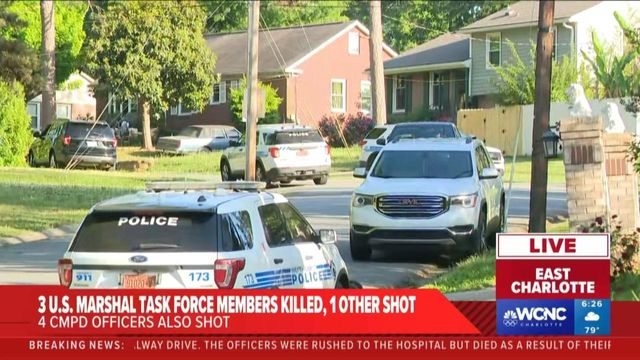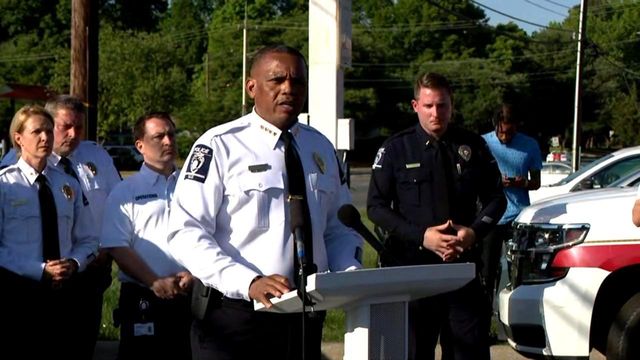Ready for School: Is your child prepared for kindergarten or is transitional kindergarten better option?

My younger daughter was born in 2009, the year that state legislators passed a law that said that children must turn five by Aug. 31 to be able to start kindergarten that year.
So I was well aware, when she was born in early September, that my daughter would turn six days after she would enter kindergarten. She'll start kindergarten in the fall after a full year in a transitional kindergarten program at the central Raleigh preschool that she's attended since she was one. And she is ready for big kid school.
I didn't have much of a choice about when to send my daughter to kindergarten (though there is an early entry option). But for parents of kids with summer birthdays, in particular, it can be a tricky question.
Shanon Baggett, who works at St. Raphael Preschool in north Raleigh, tells me that it's a common question school staff gets from parents.
"While the N.C. law does help some parents decide, not all teachers and parents feel the chronological age of the child should be the only factor," Baggett wrote me in an email.
The questions prompted Baggett, the school's director and its transitional kindergarten teacher to write an article for parents. It's based on the school's 35-year-old history and from the experience of the school's transitional kindergarten teachers, who lead the Eagles class, over the last eight years, Baggett said.
The Eagles class is described as a "bridge between preschool and kindergarten, functioning to allow children time to develop fundamental skills needed for success in school.”
I know this is an issue that parents struggle with. The piece offers some great information and advice, which I thought I'd share.
Here it is:
Over the years, the kindergarten curriculum has become less focused on the development of children’s social skills and more academically focused. When surveyed, kindergarten teachers put highest on the list of desirable characteristics for their incoming students their ability to demonstrate self-help skills (92.5 percent) such as confidently handling their bathroom needs, managing their coats and book bag, opening their own lunch, etc. Also very high on the list was that the children are able to separate from their parents without anxiety (71.5 percent), respect the rights of others by keeping hands to self or keeps to own space (67.9 percent), and demonstrates self control and positive classroom behavior (64.2 percent). Kindergarten teachers want their students to be ready at the start of the school year to tackle academic goals.
Q: What are some questions parents should ask themselves about their child when considering transitional kindergarten vs. kindergarten?
A: In most kindergartens, children will be engaging in pencil and paper tasks. Does my child struggle with fine motor tasks? Would he rather play with cars and trucks than try to color or cut? Does she avoid art activities? Does she enjoy trying to form some of the letters in her name?
Kindergarten has a higher ratio of students to teachers, so children in kindergarten must display some independence and resilience. Has my child developed self-help skills? Does he have the physical stamina to make it through a full day of school? Can she speak up when she needs assistance? Can he make himself understood? Can he follow simple one- and two-step directions? Are there speech issues that should be addressed prior to kindergarten? Is he ready to handle the academic tasks of kindergarten? Does my child get apprehensive about tackling activities that other children seem to find challenging yet intriguing?
Children don’t all develop at the same rate. Does my child prefer to play either with older children or younger children rather than enjoying the social give-and-take that occurs with peers his own age? Can he share and take turns? Can she express herself in words rather than in tears or angry retaliation? Is my child beginning to be interested in numbers and letters? Does she enjoy quietly looking at books? Does he ask questions about the world and other people? A child’s chronological age and developmental age may not always agree.
Q: Are there reasons a parent should not hold a child back from kindergarten?
A: A child should not be held back if he or she has undiagnosed special needs. In this case, offering the child more time to mature will not really address these needs as special education services would. Such services should be sought out as soon as possible.
Q: How does our transitional kindergarten classroom compare to an average kindergarten class?
A: The transitional kindergarten class provides a lower student to teacher ratio so we can teach skills in smaller groups appropriate to each child's developmental level, thereby tailoring our centers to individual students’ learning needs and providing differentiated class work for each child’s skill set. Transitional kindergarten also offers the type of "play time" that is intentionally designed to build the very physical, social, intellectual and emotional skills needed for kindergarten. It provides positive social skills practice and the hands-on learning young children require.
Q: Will my child feel “left behind” if I send them to transitional kindergarten instead of on to kindergarten?
A: A child will not know the difference between transitional kindergarten and kindergarten unless the parent specifically points this out to their child. The children in our class come from many different neighborhoods and go on to many different schools. If anything, a child who chooses Transitional Kindergarten will gain confidence and develop the needed skills to become a leader and helper in their kindergarten classroom.
You can find information about transitional kindergartens in the region in our preschool database.









